Imagine if you could use “one weird trick” to tweak a single hormone in your body and…
- Gain muscle and lose fat without ever stepping into a gym.
- Dramatically improve mood and energy levels.
- Be strong, confident, and assertive.
- Have the best sex of your life
- Get the best sleep of your life.
- Look and feel younger.
Well, these are just a handful of the carrots dangled by the “testosterone peddlers” lurking around the Internet.
If we’re to believe the hype, increasing testosterone levels is basically like grabbing the star from Super Mario–it empowers you to do whatever the fuck you want.
Thus, it’s no surprise that increasing testosterone is such a hot button these days.
- Testosterone replacement therapy has seen a meteoric rise in popularity.
- Testosterone supplements are becoming perennial bestsellers.
- Steroid use is on the rise.
- And everywhere you look in the health and fitness space there’s another diet or training program that claims to optimize hormone levels.
Well, in this article we’re going to look at the science of testosterone and testosterone boosting and see what matters and works and what doesn’t.
So, let’s start with a simple question that many people can’t really answer…
Table of Contents
+Want to listen to more stuff like this? Check out my podcast!
What Is a Hormone?
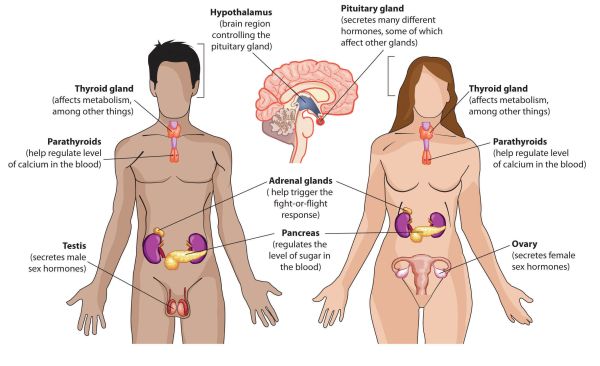
Most people know that testosterone is a “hormone” but don’t understand what hormones are.
Well, hormones are chemical substances produced in the body that control and regulate the activity of certain cells or organs.
Hormones play vital roles in every activity of life, including digestion, metabolism, growth, reproduction, and even mood control.
You can think of them as “messenger molecules” that stimulate cells and organs in various ways. For example, insulin is a hormone that causes cells to absorb glucose from the blood and use it for energy.
Testosterone is a hormone-like insulin but its effects in the body are very different…
What Is Testosterone?
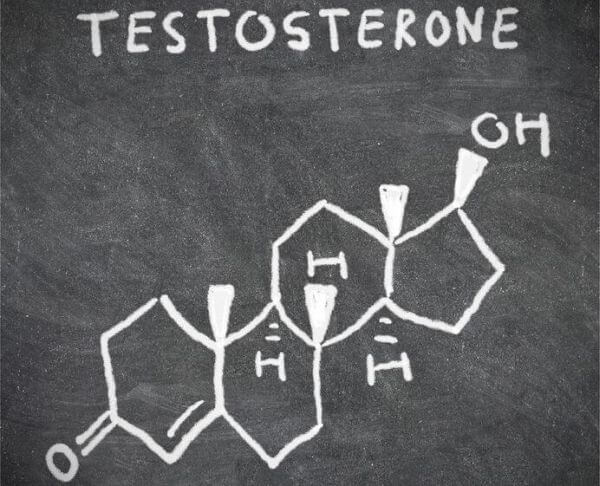
Testosterone is a hormone produced primarily in the testicles in men and ovaries in women.
It’s the most important androgen (male) hormone in the body and, accordingly, men generally have far higher testosterone levels than women.
Testosterone levels influence many things in the body, including…
- Bone and muscle strength
- Sperm production
- Sex drive
- Red blood cell production
- Mood and energy levels
In a very literal sense, the more testosterone there is in the body, the more “manly” it becomes.
(And on the flip side, the more estrogen–female–hormones there are, the more womanly it becomes.)
And when testosterone levels are lower than they should be, symptoms can include…
- Low sex drive
- Erectile dysfunction
- Sleep problems
- Muscle and strength loss
- Low sperm count
- Increase in body fat
- Depression
- Mental fogginess
So, as you can see, we have a good reason to care about our testosterone levels and keep them in a normal range.
What is a normal range, though?
What Are Normal Testosterone Levels?

When we’re talking testosterone levels, we need to distinguish between testosterone and free testosterone.
This is important because most of the testosterone your body produces binds to two proteins–albumin and sex hormone binding globulin.
A large portion of these “bound” hormones can’t disassociate from the proteins and thus aren’t available for use.
In this way, someone can have high amounts of testosterone but low amounts of free testosterone and experience symptoms associated with low testosterone levels.
Now, testosterone levels (total and free) can be assessed with a simple blood test and can be expressed in several different ways.
A common way of expressing it is in nanograms per deciliter (of blood), or ng/dL. (A nanogram is a billionth of a gram and a deciliter is a tenth of a liter.)
In general, the normal ranges of testosterone in men are as follows:
- 270 to 1070 ng/dL total testosterone with an average of about 679 ng/dL.
- 9 to 30 ng/dL free testosterone with an average of about 2 to 3% of total testosterone levels.
And in women:
- 15 to 70 ng/dL total testosterone.
- 0.3 to 1.9 ng/dL free testosterone (with the same average as men).
As you can see, some people are naturally quite high in testosterone and others are quite low.
What Are Low Testosterone Levels?

As you now know, the range of what’s considered “normal” for testosterone levels is quite large.
A level that is perfectly fine for one person could be hypogonadism for another,
This is why symptoms must be considered in additional to actual testosterone and free testosterone levels when evaluating hormonal status.
For example, a middle-aged man might have no symptoms of low testosterone at 400 ng/dL while a young man probably would.
To that point, research shows that in men younger than 40 years old, the probability of symptoms of low testosterone increase as total testosterone levels dip under 400 ng/dL.
The symptoms most strongly associated with decreased testosterone levels were sadness; decreased energy, strength, and ability to play sports; and a deterioration in work performance.
Another study found that in men aged 40 to 90 years old, symptoms of low testosterone were most associated with total testosterone levels of sub-300 ng/dL.
The symptoms in middle-aged men were similar but included sexual factors: erectile dysfunction, decreased libido, energy, strength, endurance, and ability to play sports, and falling asleep after dinner.
The Truth About Testosterone and Muscle Growth

Now that we know a bit more about what testosterone is and how it works in the body, let’s get to the meat and potatoes of this article.
If you ask the average gymgoer what single bodily factor most influences how quickly we can build muscle and lose fat, he would probably answer “testosterone levels.”
And he’s right.
Testosterone is the primary hormonal drive of muscle growth.
Its muscle-building effects are so strong that research shows that anabolic steroid use can stimulate muscle growth and fat loss without any exercise whatsoever.
Thus, it would seem to be a fair assumption that the higher our testosterone levels are, the more muscle we’d build and fat we’d lose, right?
Well, this is where things get interesting.
That assumption is certainly true if we’re talking about dramatically raising testosterone levels through drug use. Nobody can dispute the powerful muscle-building and fat-burning effects of steroids.
But here’s something that most people don’t know:
Fluctuation of testosterone levels within the physiological normal range doesn’t significantly help or hurt muscle growth.
That is, if you increase your testosterone levels but they remain well within the range of normal, you’re unlikely to notice any muscle-building benefits.
And that’s not just theory–there’s scientific evidence to back it up.
For example, a study conducted by researchers at McMaster University investigated if the acute hormonal changes that happen during weightlifting affect muscle and strength gains.
The subjects were young, resistance-trained men, and they did 5 weightlifting workouts per week and followed a standard “bodybuilding” diet.
After 12 weeks, scientists found that exercise-induced spikes in anabolic hormones like testosterone, growth hormone, and IGF-1 had no effect on overall muscle growth or strength gains.
That is, the size of the hormonal responses seen in the subjects varied widely but there was no significant difference in terms of muscle and strength gains.
Another study worth reviewing was conducted by researchers at Charles R. Drew University of Medicine and Science.
This involved manipulating the testosterone levels of 61 young, healthy men using a combination of testosterone and drugs to inhibit natural testosterone production.
After 20 weeks, scientists found there was a dose-dependent relationship between testosterone and leg strength and power (higher testosterone levels meant more strength and power)…
…but the effects weren’t significant until testosterone levels exceeded the top of the natural range by about 20 to 30% (about 1,200 ng/dL).
Now, this study does have an obvious limitation: the subjects weren’t exercising.
The strength and power gains would have been higher if subjects had been weightlifting, of course, but it’s telling nonetheless.
And just to lend further perspective on the matter, let’s review a bit of steroid research.
Scientists at Maastricht University published an extensive review of studies related to the use of anabolic steroids in 2004 and found the following:
- Muscle gains in people lifting weights on steroids ranged between 4.5 and 11 pounds over the short term (less than 10 weeks).
- The largest amount of muscle gain over the short term was 15.5 pounds over the course of 6 weeks.
(In case you’re wondering why the large variation in gains, a multitude of factors ultimately determined the results including training history, genetics, workout programming, diet, etc.)
Now, compare this to what you can achieve naturally and my point becomes clear:
Even when you blast your testosterone through the roof with drugs and add additional anabolic steroids on top, it doesn’t necessarily mean you’re going to gain “shocking” amounts of muscle.
And if that’s the case with the sky-high testosterone levels that come with drug use, what does that tell us about small fluctuations that can occur within the physiological normal ranges?
That’s right–it’s just not going to make much of a difference except in the most extreme cases of, let’s say, going from the absolute bottom of normal to the top.
Now, building more muscle isn’t the only reason why so many people are looking to raise their testosterone levels.
Losing fat is also high on the list.
The Truth About Testosterone and Fat Loss

The study I cited earlier from researchers at the Charles R. Drew University of Medicine and Science also looked at how varying levels of total testosterone related to body fat percentage.
They found that, unlike leg strength and power, different testosterone levels within the physiological normal range was significantly correlated with leanness.
The higher the subjects’ testosterone was, the naturally leaner they were and this effect was seen even with relatively small differences of just 100 to 200 ng/dL.
Even more surprising was that when certain subjects’ testosterone levels were decreased from their normal levels of about 600 ng/dL to about 300 ng/dL, total fat mass rose by an average of 36%.
Keep in mind, however, that diets compliance was tracked with food logging. The problem here is people tend to under-report intake on food surveys so we can’t quite know for sure how much the low-testosterone group was eating every day.
I mention this because low testosterone levels are known to increase the risk of depression and depressive symptoms, which in turn increases the tendency to overeat.
Anyway, although the exact mechanisms behind this connection between testosterone levels and leanness weren’t fully understood, studies show that testosterone directly inhibits the creation of fat cells and that low testosterone is a contributing factor to obesity.
How to Naturally Increase Testosterone

Now that we’ve taken an evidence-based look at how testosterone affects body composition and set some realistic expectations as to what can and can’t be achieved naturally, let’s talk a bit about what landed you on this article in the first place:
How to increase your testosterone levels.
Let’s break this down into several sections: diet, training, and supplementation.
How to Increase Testosterone With Diet

As with most things bodily, how you eat has a profound effect on your testosterone levels.
Get it right and you can optimize your anabolic hormone production. Get it wrong and you can hamstring it.
So, if we’re going to talk testosterone and diet, let’s just drop right into the beltway of “high-testosterone dieting”…
…the low-carb and high-fat diet.
How Carbs and Fats Affect Testosterone Levels
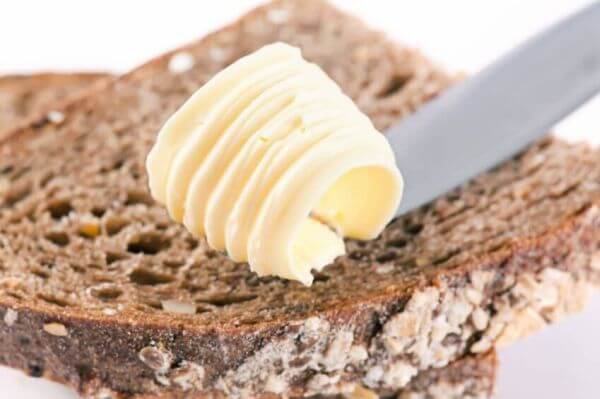
Testosterone “gurus” everywhere tout the powerful hormone-boosting effects of this type of diet but, as you can already tell, I’m not one of them.
You see, dietary fats play a vital role in the body because they’re needed for a variety of physiological processes like cell maintenance, hormone production, insulin sensitivity, and more.
If dietary fat intake is too low, these functions can become compromised, which is why the Institute of Medicine recommends that adults should get 20 to 35% of their daily calories from dietary fat.
That said, those percentages were worked out for the average sedentary person, who often eats quite a bit less than someone that exercises regularly. And even more so if that person has a higher than average amount of muscle mass.
For example, a 190-pound sedentary male with a normal amount of lean mass would burn around 2,000 calories per day.
Based on that, the IoM’s research says he would need 45 to 80 grams of fat per day. That makes sense.
Now, here’s a shot of me:
I’m 6’2 and 191 pounds and I lift weights for about 4 to 6 hours per week. I have about 40 pounds more muscle than the average guy my height and weight.
Thus, my body burns a lot more calories than my “normal,” sedentary counterpart–about 3,000 calories per day to be exact.
Now, if I were to blindly apply the IoM’s recommendation, my recommended fat intake would skyrocket from 65 to 115 grams per day.
But does my body really need that much more dietary fat simply because I’m muscular and exercise regularly?
No, it doesn’t.
Based on the nutritional research I’ve reviewed, a dietary fat intake of about 0.3 grams per pound of fat-free mass is all your body needs for its basic health needs.
This comes out to about 25 to 35% of your basal metabolic rate, which is more in line with the IoM’s research.
So, ignore the high-fat advocates that claim that anything below high amounts like 0.4 or 0.5 grams per pound of body weight are going to ruin your health.
It’s just not true.
So, with that under our belt, let’s now look at high-fat dieting and testosterone.
Dietary Fat Intake and Testosterone Production
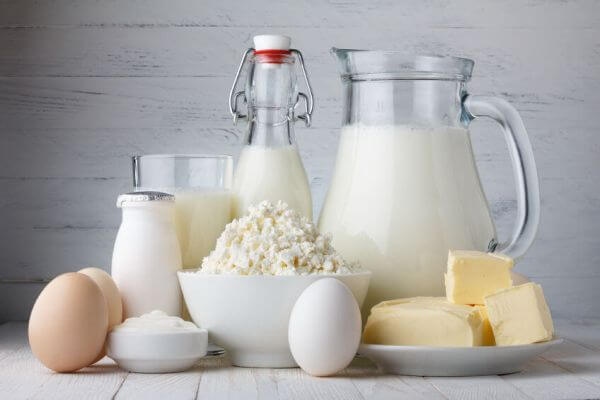
It’s well known that switching from a low-fat to a high-fat diet can increase testosterone levels…but not by much.
For example, one study showed that men getting 41% of daily calories from fat had 13% more testosterone than man getting just 18% of daily calories from fat.
These findings were similar to those of another study conducted a decade earlier.
Well, as you now know, a 13% increase in testosterone levels isn’t going to do much of anything in terms of accelerating muscle growth or fat loss.
More importantly, though, there’s a big problem with these studies:
The subjects weren’t exercising.
And when regular exercise–and especially regular intense exercise–enters the picture, everything changes.
Carbohydrate Intake and Testosterone Production
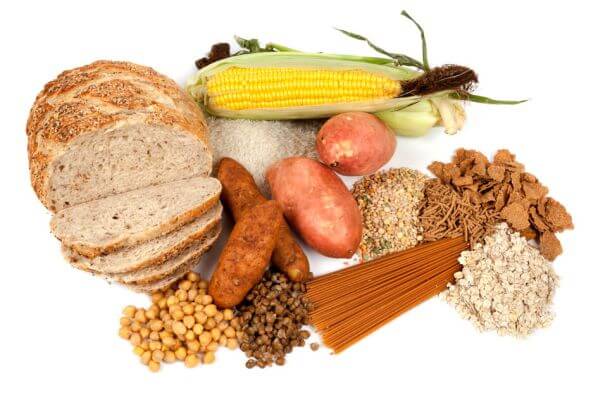
A study conducted by researchers at the University of North Carolina found that when combined with daily exercise, a low-carbohydrate diet increased resting cortisol levels and decreased free testosterone levels.
Similar effects were seen in this study, which was conducted over two decades earlier.
Now, it’s no surprise that high levels of cortisol resulted in lower testosterone levels–we’ve known for quite some time that cortisol and testosterone have an inverse relationship.
How does carbohydrate intake fit into this picture, though? Why did the low-carb group have higher resting cortisol levels than the high-carbers?
Well, a high-carb diet results in all-around higher insulin levels than a low-carb one. That’s important because insulin lowers cortisol levels.
Thus, in a sense, high insulin levels prevent cortisol from putting the brakes on testosterone production. And a high-carb diet is how you reap these insulin-derived benefits.
It’s also worth noting that while insulin isn’t anabolic like testosterone, it does have powerful anti-catabolic properties.
This means that insulin decreases the rate at which muscle proteins are broken down, which creates a more anabolic environment conducive to muscle growth.
These studies also help explain the findings of other research on low-carb dieting.
For example, a study conducted by researchers at the University of Rhode Island looked at how low- and high-carbohydrate intakes affected exercise-induced muscle damage, strength recovery, and whole body protein metabolism after a strenuous workout.
The “low-carb diet” wasn’t all that low, actually–about 225 grams per day–and the high-carb diet provided about 353 grams per day.
The result was the subjects on the “low-carb diet” lost more strength, recovered slower, and showed lower levels of protein synthesis.
In a study conducted by researchers at McMaster University, subjects depleted glycogen stores by cycling and then followed either a high- or low-carb diet for 2 days and then did a 2-hour leg workout.
Scientists found that those on the low-carb diet experienced higher rates of protein breakdown and lower rates of protein synthesis, resulting in less overall muscle growth than their higher-carb counterparts.
So, if you’re a healthy, non-obese person that’s exercising regularly, I’d bet a lot of money that you’ll do best on a high-carb (and high-protein) diet.
- You’ll have better workouts.
- You’ll gain more muscle and strength.
- You’ll be more satisfied from your meals.
- You’ll have better energy levels.
- You’ll be in a better mood.
Aaaaand…
- You’ll have a better hormone profile.
If you don’t exercise regularly, however, and your goal is to increase your testosterone levels, then a high-fat, low-carb diet is probably right for you.
That said, the diet alone won’t be enough to really move the needle.
You will want to combine it with the other strategies discussed below (which include regular exercise, soooo…back to high-carb you’ll go).
How Protein Affects Testosterone Levels
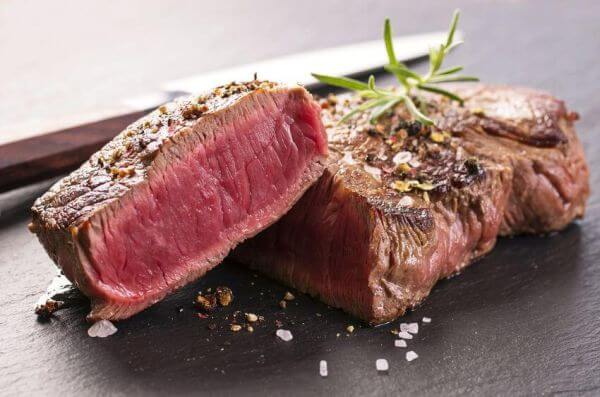
Fortunately, I can keep this section short and sweet.
If you’re physically active, a high-protein diet is good in so many ways…but it doesn’t affect testosterone production.
That’s what scientist from the College of New Jersey found in this study, which split 23 experienced collegiate weightlifters into three groups:
- 1 to 1.4 grams of protein per kilogram of body weight
- 1.6 to 1.8 g/kg
- 2 g/kg
After 12 weeks of training on these diets, there were no significant differences in subjects’ testosterone levels.
So, you should make sure you’re eating enough protein but not because it’s going to improve your testosterone levels.
How Energy Balance Affects Testosterone Levels

Energy balance is the relationship between the amount of energy you eat and the amount you burn.
When you eat less energy than you burn, you’re in what’s known as a “negative energy balance” or “calorie deficit.”
This results in weight loss.
And when you eat more than you burn, you’re in a “positive energy balance” or “calorie surplus.”
This results in weight gain.
There are hormonal effects as well.
Namely, a calorie deficit lowers testosterone levels but they return to normal once the deficit is erased (once energy intake matches or exceeds output).
The takeaway here isn’t that you shouldn’t ever be in a calorie deficit, of course. It’s necessary for losing fat.
The point is you shouldn’t be in a calorie deficit over long periods of time, whether intentional or not.
Naturally, there are exceptions to this, such as someone that needs to lose a large amount of fat.
But in my experience, many people accidentally remain in a slight calorie deficit for months or even years through mild, chronic undereating. Women seem to make this mistake more than men.
And in case you’re wondering why their weight tends to stay in the same range during this period, sporadic bouts of overeating cause them to gain back the small amounts of fat they lose while in a deficit.
Anyway, hormonally speaking, this isn’t optimal.
Instead, you should know approximately how much energy you’re burning every day and your default “diet” should entail eating that many calories or more, depending on your body composition goals.
Every so often, if your body fat percentage gets too high, you use a short bout of aggressive (but smart) calorie restriction to bring it back down and then raise your calorie intake back up to your approximate expenditure.
This way your body spends relatively little time in a calorie deficit and you can maintain an optimal body fat range.
How Body Fat Levels Affect Testosterone Levels
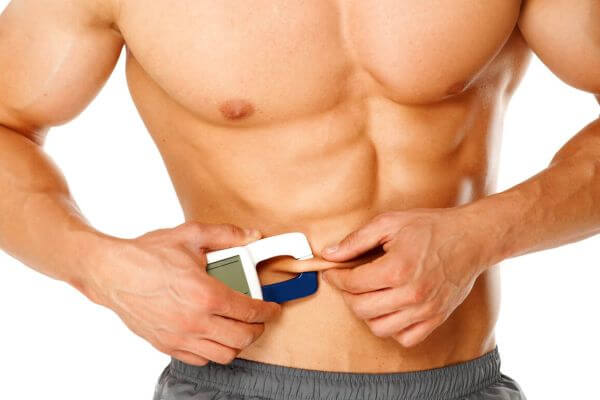
When we’re talking hormones, body fat levels are just as important as energy balance.
Research shows that as body fat levels rise, free testosterone levels drop. Estrogen levels rise as well.
This is why high body fat levels are generally associated with low testosterone levels.
And this one of the reason’s why I recommend that men over 15% focus on cutting fat to the 10% before “bulking.”
In women, a safe “cut off” is about 25% body fat (if they want optimal hormone levels, they shouldn’t get fatter than 25% body fat).
How to Increase Testosterone With Exercise

You’ve probably heard that exercise increases testosterone levels…but it’s not that simple.
Yes, it certainly can, but if you go about it incorrectly (and many people do), it can actually do the opposite.
The wrong way is simple: do a ton of cardio.
This significantly reduces testosterone and raises cortisol levels, which isn’t surprising given the amount of stress it puts on the body.
These effects become even more pronounced when combined with a calorie deficit, which is a great way to lose muscle and wind up skinny fat.
(That isn’t to say that cardiovascular exercise is bad, by the way–doing too much is bad. Read this article to learn more.)
The right way is equally simple: do a moderate amount of resistance training instead.
There’s a large body of research going back decades that clearly shows the testosterone-enhancing properties of resistance training.
Two of the major things to know are:
1. Focus on compound exercises like the squat, deadlift, bench press, and military press, because they elicit larger hormonal responses than isolation exercises.
Yet another reason to love these exercises.
2. Follow a workout routine that combines traditional strength and bodybuilding training.
This combination of training methodologies is ideal for maximizing both muscle growth and testosterone production.
Low-rep, high-weight strength training is vital for building large amounts of muscle over the long term.
Pure strength programs tend to be very low volume, though (you don’t do many reps per week), which isn’t optimal for increasing testosterone levels.
This is why my weightlifting programs are a “hybrid” approach that emphasize heavy compound weightlifting with a higher weekly volume than most strength programs.
And if you’re going to do cardio as well, I highly recommend high-intensity interval training.
You not only get more fat burning bang for your buck, research shows it increases testosterone levels more than steady-state endurance exercise.
Why “Testosterone Supplements” Suck
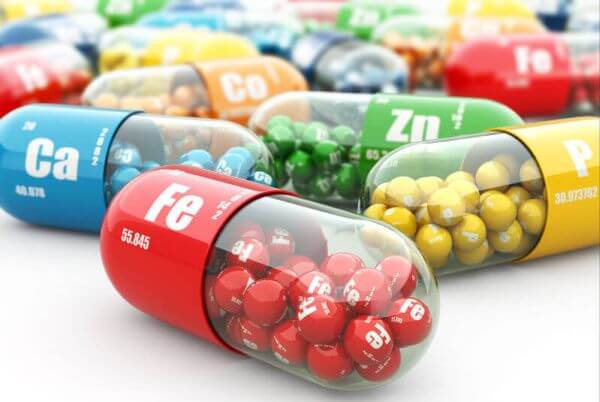
Natural testosterone boosters are wildly popular these days.
If we’re to believe the marketing hype, these products are basically as strong as steroids and will transform us into musclebound alpha males that make women swoon and men tremble.
The sales pitches can be slick and often include pseudoscientific appeals and references to studies that “prove” their effectiveness.
Unfortunately they’re more or less worthless.
Most of these supplements hang their hats on one or more of the following ingredients:
- Tribulus terrestris
- ZMA
- D-aspartic acid
Well, multiple studies have proven that supplementation with Tribulus terrestris has no effect on testosterone levels, body composition, or exercise performance.
ZMA is a combination of zinc, magnesium, and vitamin B6, and its story is about the same. Unless you’re deficient in zinc, studies have shown that ZMA doesn’t increase testosterone levels.
(That said, I do personally supplement with zinc and magnesium because I don’t always get enough from my diet.)
Research shows that supplementation with D-aspartic acid can increase testosterone levels in both humans and rats, but the effects are temporary. In otherwise healthy men, the testosterone-boosting benefits disappear after about a month of use.
You can find many other ingredients in testosterone boosters such as saw palmetto, horny goat weed, eurycoma longifolia jack, holy basil, and velvet antler…and they’re just more of the same.
One by one, though, studies show they are disappointing at best as testosterone enhancers.
Some, like horny goat weed and eurycoma longifolia jack, lack credible, legitimate human research and others, like saw palmetto and velvet antler are proven to do absolutely nothing in terms of testosterone production.
The key takeaway is this:
Simply ignore all the flashy testosterone pills advertised all over the magazines and Internet.
If they contain natural ingredients, they won’t work. (And don’t think there aren’t people out there that slip drugs into their “natural” testosterone boosters.)
Nutritionally speaking, the best you can do is supporting your natural testosterone production by ensuring you’re not deficient in several vitamins and minerals like zinc, vitamin D, and magnesium (which is why I made and personally take this multivitamin).
The Bottom Line on How to Increase Your Testosterone

Unfortunately, there aren’t any (natural) quick fixes for increasing testosterone.
High testosterone levels are something you have to earn through consistent healthy living.
No surprise here, really.
So, if you want to increase your testosterone levels, here’s what you can do:
- Eat enough calories.
- Eat plenty of nutritious foods.
- Balance your macronutrients properly.
- Stay lean.
- Supplement with a well-formulated multivitamin.
- Lift weights regularly.
- Don’t do too much cardio.
And you’ll maximize your body’s natural testosterone production.
Oh and one last testosterone tip for the road: maintain good sleep hygiene!
What do you think about these tips on how to increase testosterone? Have anything else to share? Let me know in the comments below!
Scientific References +
- Luboshitzky R, Zabari Z, Shen-Orr Z, Herer P, Lavie P. Disruption of the nocturnal testosterone rhythm by sleep fragmentation in normal men. J Clin Endocrinol Metab. 2001;86(3):1134-1139. doi:10.1210/jcem.86.3.7296
- Topo E, Soricelli A, D’Aniello A, Ronsini S, D’Aniello G. The role and molecular mechanism of D-aspartic acid in the release and synthesis of LH and testosterone in humans and rats. Reprod Biol Endocrinol. 2009;7. doi:10.1186/1477-7827-7-120
- Koehler K, Parr MK, Geyer H, Mester J, Schänzer W. Serum testosterone and urinary excretion of steroid hormone metabolites after administration of a high-dose zinc supplement. Eur J Clin Nutr. 2009;63(1):65-70. doi:10.1038/sj.ejcn.1602899
- Prasad AS, Mantzoros CS, Beck FW, Hess JW, Brewer GJ. Zinc status and serum testosterone levels of healthy adults. Nutrition. 1996;12(5):344-348. doi:10.1016/s0899-9007(96)80058-x
- Rogerson S, Riches CJ, Jennings C, Weatherby RP, Meir RA, Marshall-Gradisnik SM. The effect of five weeks of tribulus terrestris supplementation on muscle strength and body composition during preseason training in elite rugby league players. J Strength Cond Res. 2007;21(2):348-353. doi:10.1519/R-18395.1
- Antonio J, Uelmen J, Rodriguez R, Earnest C. The effects of Tribulus terrestris on body composition and exercise performance in resistance-trained males. Int J Sport Nutr. 2000;10(2):208-215. doi:10.1123/ijsnem.10.2.208
- Saudan C, Baume N, Emery C, Strahm E, Saugy M. Short term impact of Tribulus terrestris intake on doping control analysis of endogenous steroids. Forensic Sci Int. 2008;178(1). doi:10.1016/j.forsciint.2008.01.003
- Hackney AC, Hosick KP, Myer A, Rubin DA, Battaglini CL. Testosterone responses to intensive interval versus steady-state endurance exercise. J Endocrinol Invest. 2012;35(11):947-950. doi:10.1007/BF03346740
- Kraemer WJ, Ratamess NA. Hormonal responses and adaptations to resistance exercise and training. Sport Med. 2005;35(4):339-361. doi:10.2165/00007256-200535040-00004
- Quinn TJ, Sprague HA, van Huss WD, Olson HW. Caloric expenditure, life status, and disease in former male athletes and non-athletes. Med Sci Sports Exerc. 1990;22(6):742-746. doi:10.1249/00005768-199012000-00002
- Wheeler GD, Singh M, Pierce WD, Epling WF, Cumming DC. Endurance training decreases serum testosterone levels in men without change in luteinizing hormone pulsatile release. J Clin Endocrinol Metab. 1991;72(2):422-425. doi:10.1210/jcem-72-2-422
- Rohrmann S, Shiels MS, Lopez DS, et al. Body fatness and sex steroid hormone concentrations in US men: Results from NHANES III. Cancer Causes Control. 2011;22(8):1141-1151. doi:10.1007/s10552-011-9790-z
- Rossow LM, Fukuda DH, Fahs CA, Loenneke JP, Stout JR. Natural bodybuilding competition preparation and recovery: A 12-month case study. Int J Sports Physiol Perform. 2013;8(5):582-592. doi:10.1123/ijspp.8.5.582
- Mäestu J, Eliakim A, Jürimäe J, Valter I, Jürimäe T. Anabolic and catabolic hormones and energy balance of the male bodybuilders during the preparation for the competition. J Strength Cond Res. 2010;24(4):1074-1081. doi:10.1519/JSC.0b013e3181cb6fd3
- Hoffman JR, Ratamess NA, Kang J, Falvo MJ, Faigenbaum AD. Effect of Protein Intake on Strength, Body Composition and Endocrine Changes in Strength/Power Athletes. J Int Soc Sports Nutr. 2006;3(2). doi:10.1186/1550-2783-3-2-12
- Howarth KR, Phillips SM, MacDonald MJ, Richards D, Moreau NA, Gibala MJ. Effect of glycogen availability on human skeletal muscle protein turnover during exercise and recovery. J Appl Physiol. 2010;109(2):431-438. doi:10.1152/japplphysiol.00108.2009
- Denne SC, Liechty EA, Liu YM, Brechtel G, Baron AD. Proteolysis in skeletal muscle and whole body in response to euglycemic hyperinsulinemia in normal adults. Am J Physiol - Endocrinol Metab. 1991;261(6 24-6). doi:10.1152/ajpendo.1991.261.6.e809
- Fryburg DA, Jahn LA, Hill SA, Oliveras DM, Barrett EJ. Insulin and insulin-like growth factor-I enhance human skeletal muscle protein anabolism during hyperaminoacidemia by different mechanisms. J Clin Invest. 1995;96(4):1722-1729. doi:10.1172/JCI118217
- Fernandez-Real J-M, Ricart W, Casamitjana R. Lower cortisol levels after oral glucose in subjects with insulin resistance and abdominal obesity. Clin Endocrinol (Oxf). 1997;47(05):583-588. doi:10.1046/j.1365-2265.1997.3351120.x
- Boden G, Sargrad K, Homko C, Mozzoli M, Stein TP. Effect of a low-carbohydrate diet on appetite, blood glucose levels, and insulin resistance in obese patients with type 2 diabetes. Ann Intern Med. 2005;142(6). doi:10.7326/0003-4819-142-6-200503150-00006
- Hoogeveen AR, Zonderland ML. Relationships between testosterone, cortisol and performance in professional cyclists. Int J Sports Med. 1996;17(6):423-428. doi:10.1055/s-2007-972872
- Anderson KE, Rosner W, Khan MS, et al. Diet-hormone interactions: Protein/carbohydrate ratio alters reciprocally the plasma levels of testosterone and cortisol and their respective binding globulins in man. Life Sci. 1987;40(18):1761-1768. doi:10.1016/0024-3205(87)90086-5
- Lane AR, Duke JW, Hackney AC. Influence of dietary carbohydrate intake on the free testosterone: Cortisol ratio responses to short-term intensive exercise training. Eur J Appl Physiol. 2010;108(6):1125-1131. doi:10.1007/s00421-009-1220-5
- Hämäläinen E, Adlercreutz H, Puska P, Pietinen P. Diet and serum sex hormones in healthy men. J Steroid Biochem. 1984;20(1):459-464. doi:10.1016/0022-4731(84)90254-1
- Dorgan JF, Judd JT, Longcope C, et al. Effects of dietary fat and fiber on plasma and urine androgens and estrogens in men: A controlled feeding study. Am J Clin Nutr. 1996;64(6):850-855. doi:10.1093/ajcn/64.6.850
- Corona G, Monami M, Rastrelli G, et al. Testosterone and Metabolic Syndrome: A Meta-Analysis Study. J Sex Med. 2011;8(1):272-283. doi:10.1111/j.1743-6109.2010.01991.x
- Singh R, Artaza JN, Taylor WE, et al. Testosterone inhibits adipogenic differentiation in 3T3-L1 cells: Nuclear translocation of androgen receptor complex with β-catenin and T-cell factor 4 may bypass canonical Wnt signaling to down-regulate adipogenic transcription factors. Endocrinology. 2006;147(1):141-154. doi:10.1210/en.2004-1649
- Skinner HH, Haines J, Austin SB, Field AE. A prospective study of overeating, binge eating, and depressive symptoms among adolescent and young adult women. J Adolesc Heal. 2012;50(5):478-483. doi:10.1016/j.jadohealth.2011.10.002
- Westley CJ, Amdur RL, Irwig MS. High Rates of Depression and Depressive Symptoms among Men Referred for Borderline Testosterone Levels. J Sex Med. 2015;12(8):1753-1760. doi:10.1111/jsm.12937
- Cook A, Pryer J, Shetty P. The problem of accuracy in dietary surveys. Analysis of the over 65 UK National Diet and Nutrition Survey. J Epidemiol Community Health. 2000;54(8):611-616. doi:10.1136/jech.54.8.611
- Storer TW, Magliano L, Woodhouse L, et al. Testosterone dose-dependently increases maximal voluntary strength and leg power, but does not affect fatigability or specific tension. J Clin Endocrinol Metab. 2003;88(4):1478-1485. doi:10.1210/jc.2002-021231
- Hartgens F, Kuipers H. Effects of androgenic-anabolic steroids in athletes. Sport Med. 2004;34(8):513-554. doi:10.2165/00007256-200434080-00003
- Storer TW, Magliano L, Woodhouse L, et al. Testosterone dose-dependently increases maximal voluntary strength and leg power, but does not affect fatigability or specific tension. J Clin Endocrinol Metab. 2003;88(4):1478-1485. doi:10.1210/jc.2002-021231
- West DWD, Phillips SM. Associations of exercise-induced hormone profiles and gains in strength and hypertrophy in a large cohort after weight training. Eur J Appl Physiol. 2012;112(7):2693-2702. doi:10.1007/s00421-011-2246-z
- Bhasin S, Woodhouse L, Casaburi R, et al. Testosterone dose-response relationships in healthy young men. Am J Physiol - Endocrinol Metab. 2001;281(6 44-6). doi:10.1152/ajpendo.2001.281.6.e1172
- Forbes GB. The effect of anabolic steroids on lean body mass: The dose response curve. Metabolism. 1985;34(6):571-573. doi:10.1016/0026-0495(85)90196-9
- Ramasamy R, Wilken N, Scovell JM, Kovac JR, Lipshultz LI. Hypogonadal symptoms are associated with different serum testosterone thresholds in middle-aged and elderly men. Urology. 2014;84(6):1378-1382. doi:10.1016/j.urology.2014.07.049
- Scovell JM, Ramasamy R, Wilken N, Kovac JR, Lipshultz LI. Hypogonadal symptoms in young men are associated with a serum total testosterone threshold of 400 ng/dL. BJU Int. 2015;116(1):142-146. doi:10.1111/bju.12970










